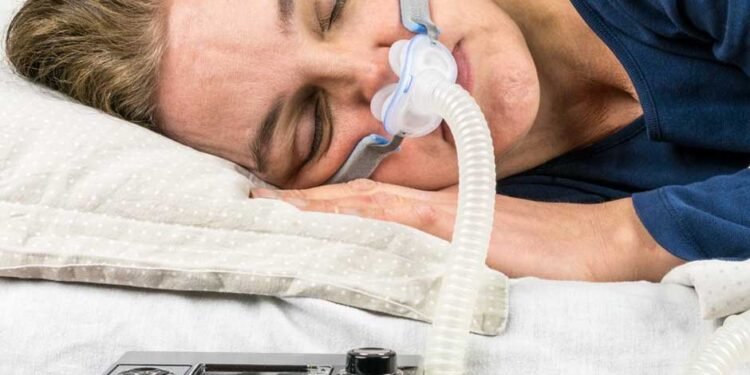Yes, sleep apnea can potentially be a serious medical condition that, if left untreated, can lead to various health complications, including a higher risk of death. Sleep apnea is a disorder characterized by repetitive pauses in breathing during sleep, which can result in decreased oxygen levels in the blood and disrupted sleep patterns. There are two main types of sleep apnea: obstructive sleep apnea (OSA) and central sleep apnea (CSA).
In obstructive sleep apnea, the most common form, the airway becomes partially or completely blocked during sleep, leading to breathing interruptions. This can cause a drop in blood oxygen levels and trigger the release of stress hormones, leading to a strain on the cardiovascular system. Over time, untreated OSA can contribute to the development of serious health conditions such as:
Cardiovascular Diseases: Sleep apnea is associated with an increased risk of high blood pressure, heart disease, heart attacks, and stroke. The frequent fluctuations in blood oxygen levels and the stress on the heart during sleep can contribute to the deterioration of heart health.
Type 2 Diabetes: Sleep apnea has been linked to insulin resistance and an increased risk of developing type 2 diabetes. The disrupted sleep patterns and hormonal imbalances caused by sleep apnea can affect glucose metabolism.
Daytime Fatigue and Impaired Cognitive Function: People with untreated sleep apnea often experience excessive daytime sleepiness, which can impair their ability to concentrate, make decisions, and function effectively. This can lead to accidents and reduced quality of life.
Mental Health Issues: Sleep apnea has been associated with an increased risk of mood disorders such as depression and anxiety. Sleep disruption and hormonal imbalances can contribute to changes in mood and emotional well-being.
Obesity: Obesity is a risk factor for sleep apnea, and the condition can also contribute to weight gain. The relationship between obesity and sleep apnea can create a cycle that exacerbates both conditions.
Increased Mortality Risk: Several studies have shown a link between untreated sleep apnea and an increased risk of premature death. The strain on the cardiovascular system and the potential for complications from related health conditions contribute to this elevated risk.
It’s important to note that while sleep apnea can be serious, it is also a treatable condition. Lifestyle changes such as weight loss, positional therapy, and avoiding alcohol and sedatives before bedtime can help alleviate mild cases of sleep apnea. Continuous positive airway pressure (CPAP) therapy, which involves wearing a mask that delivers a continuous flow of air to keep the airway open, is a common treatment for moderate to severe sleep apnea.
If you suspect you or someone you know has sleep apnea, it’s crucial to seek medical attention and undergo a proper diagnosis. Armodafinil 150 and Modafinil 200mg Online Sydney from https://www.australiapills.com/ A healthcare provider can recommend the most appropriate treatment plan to manage the condition and reduce the associated health risks.












